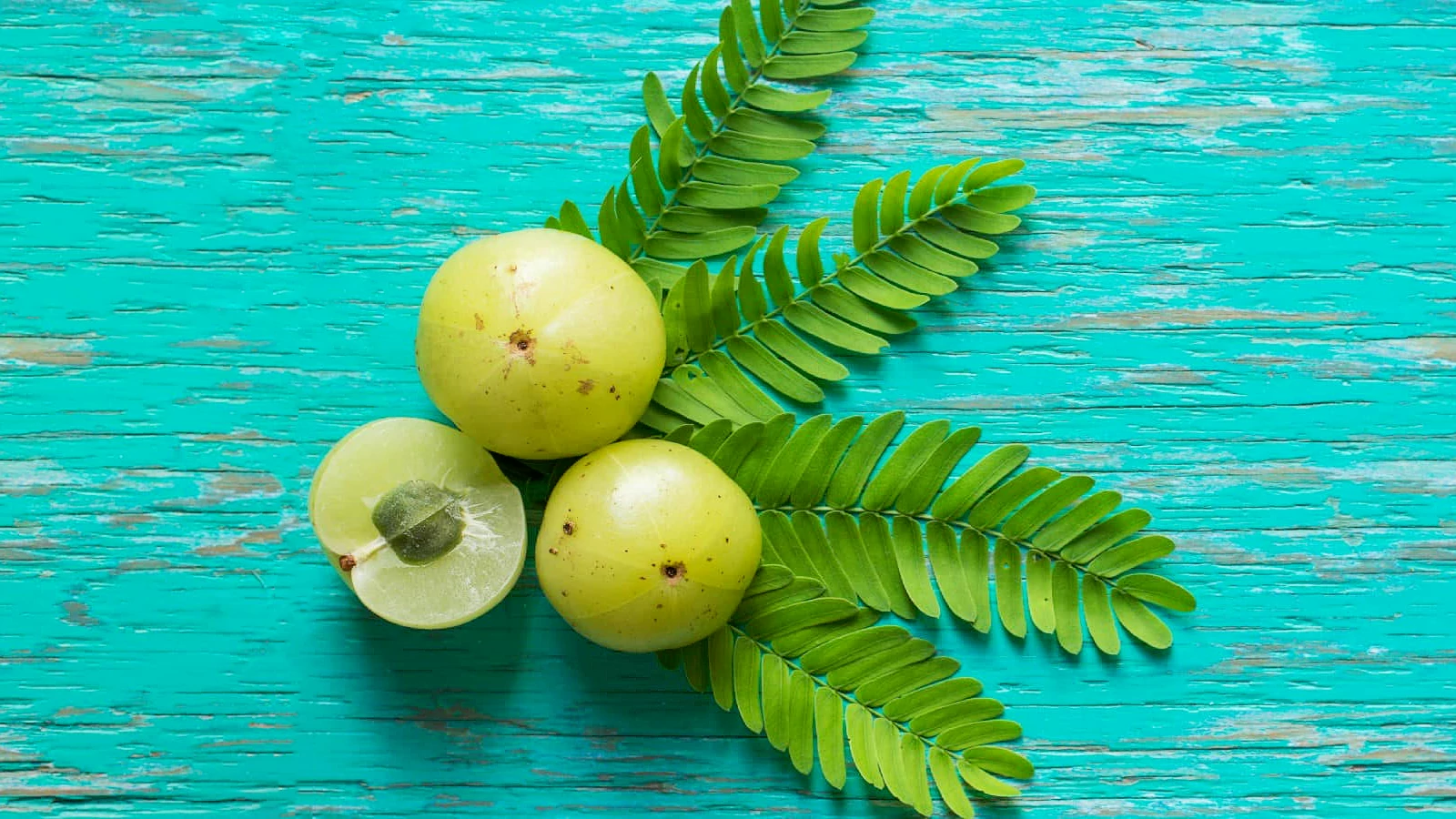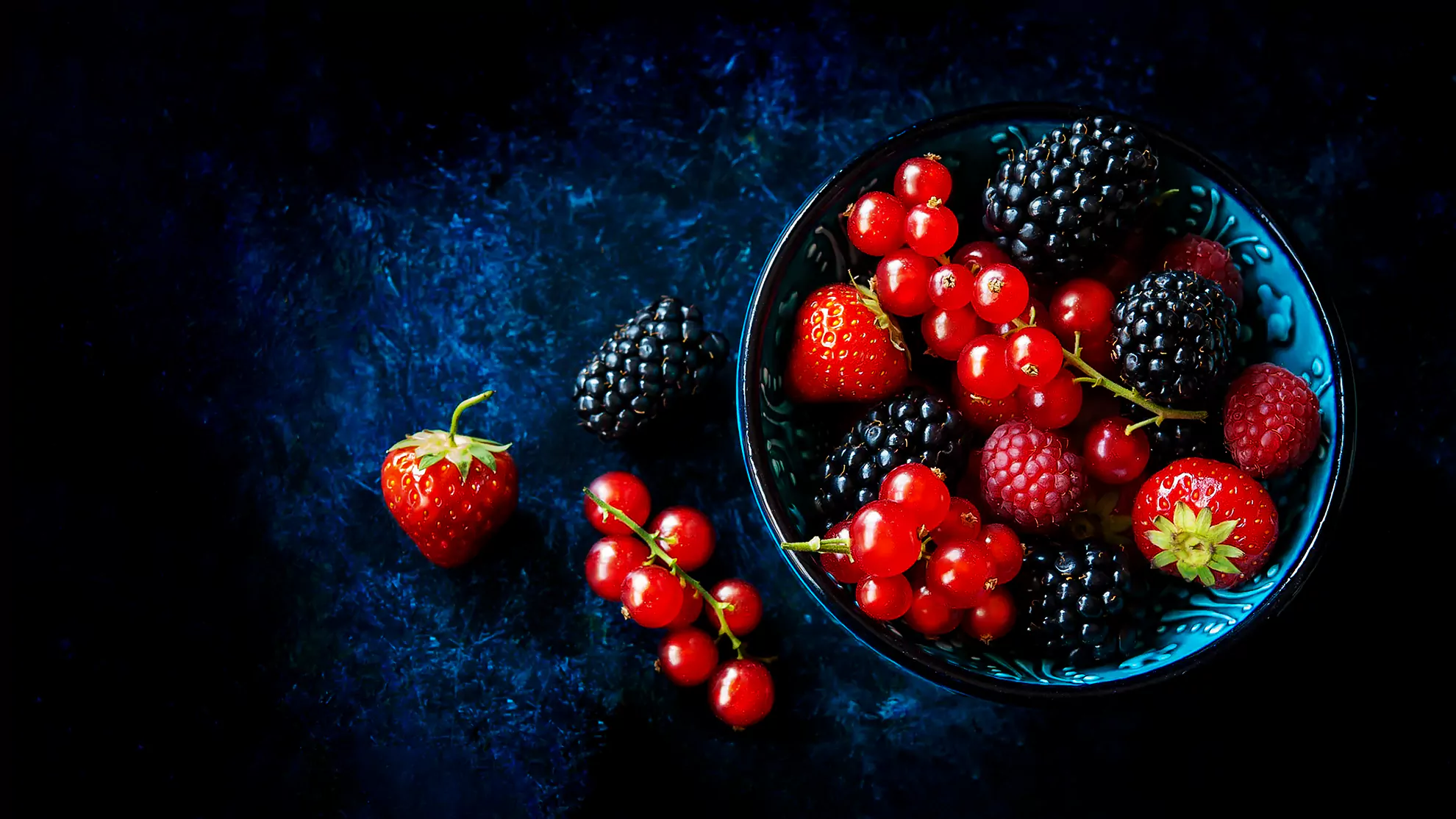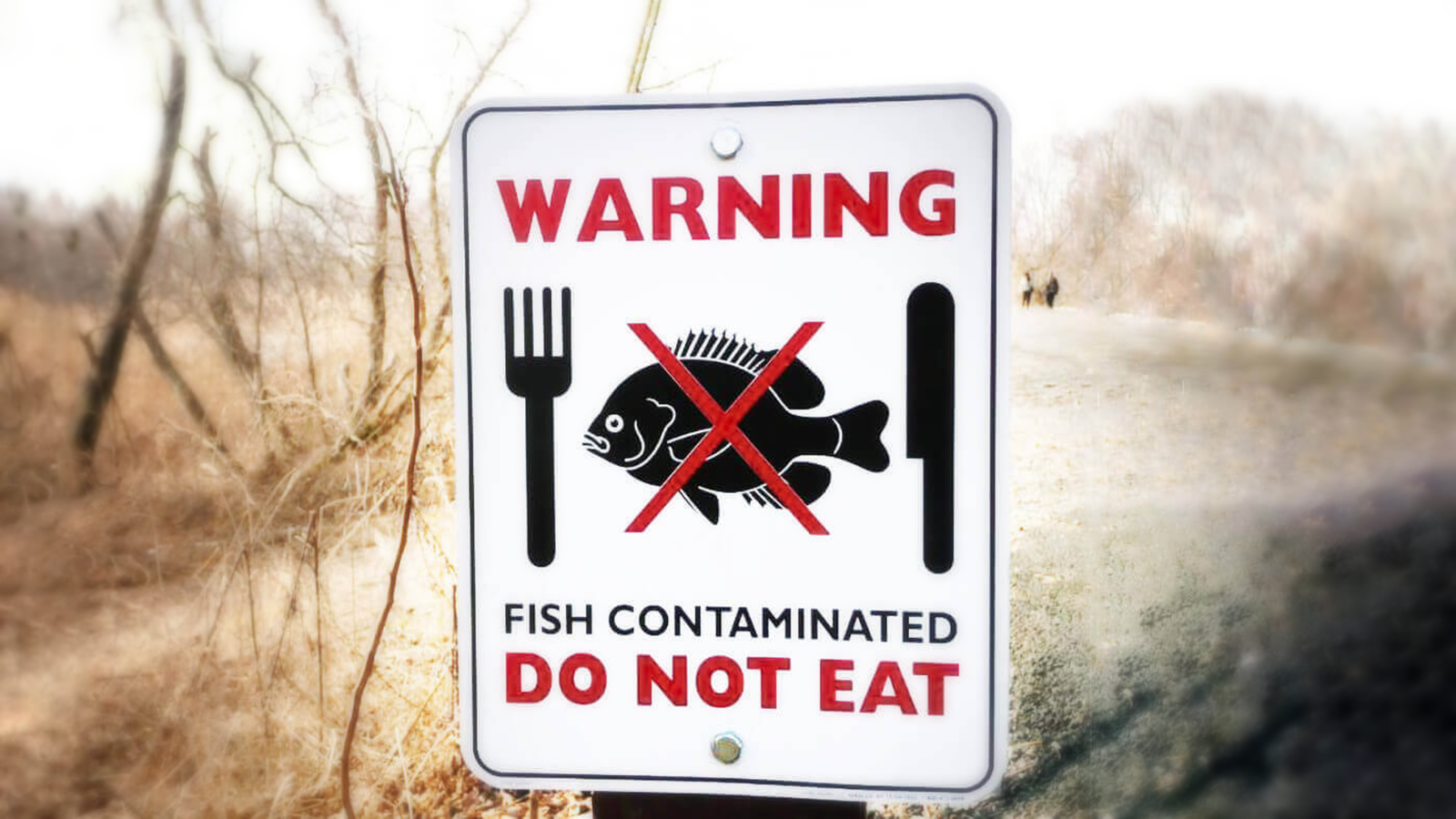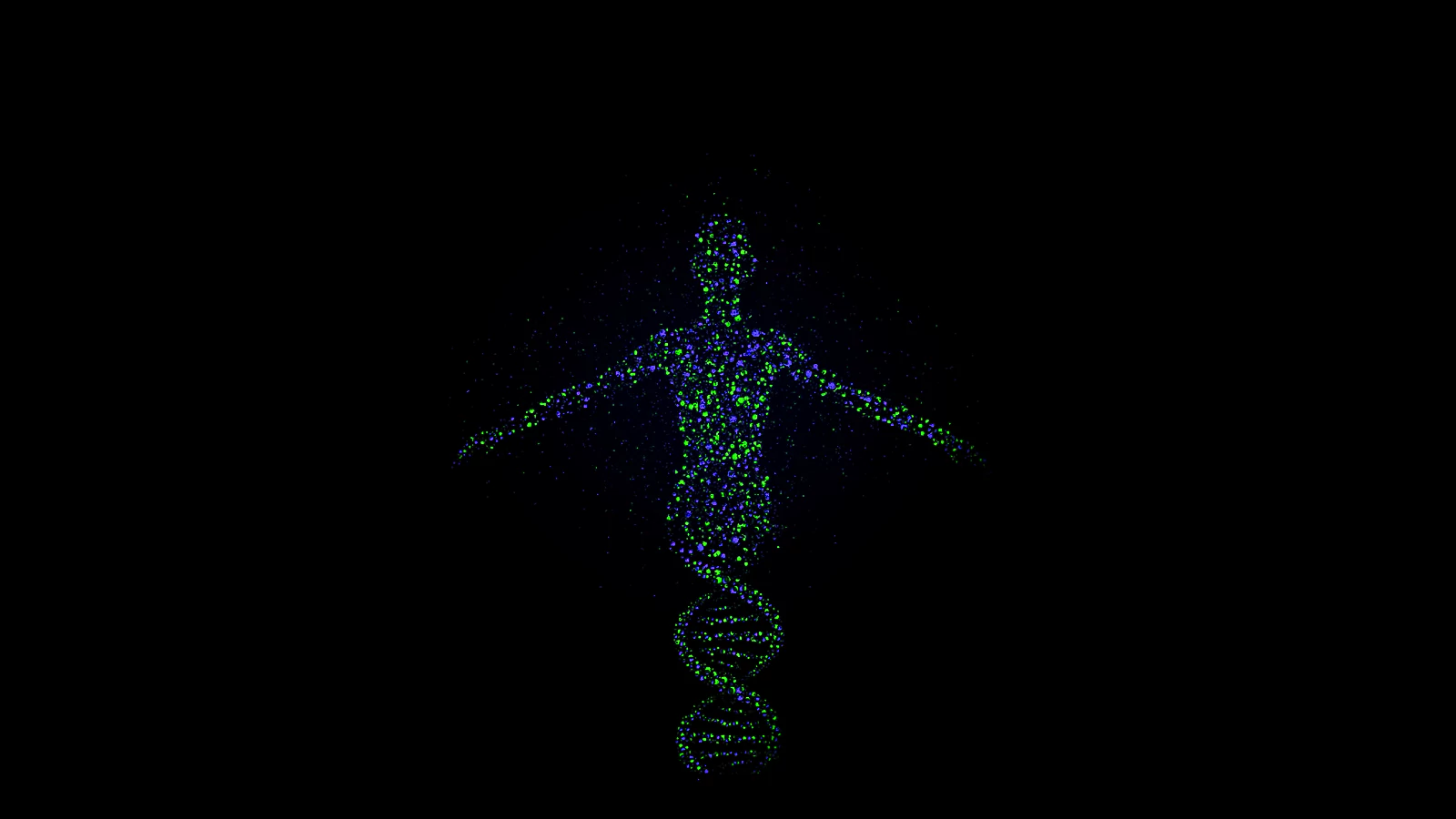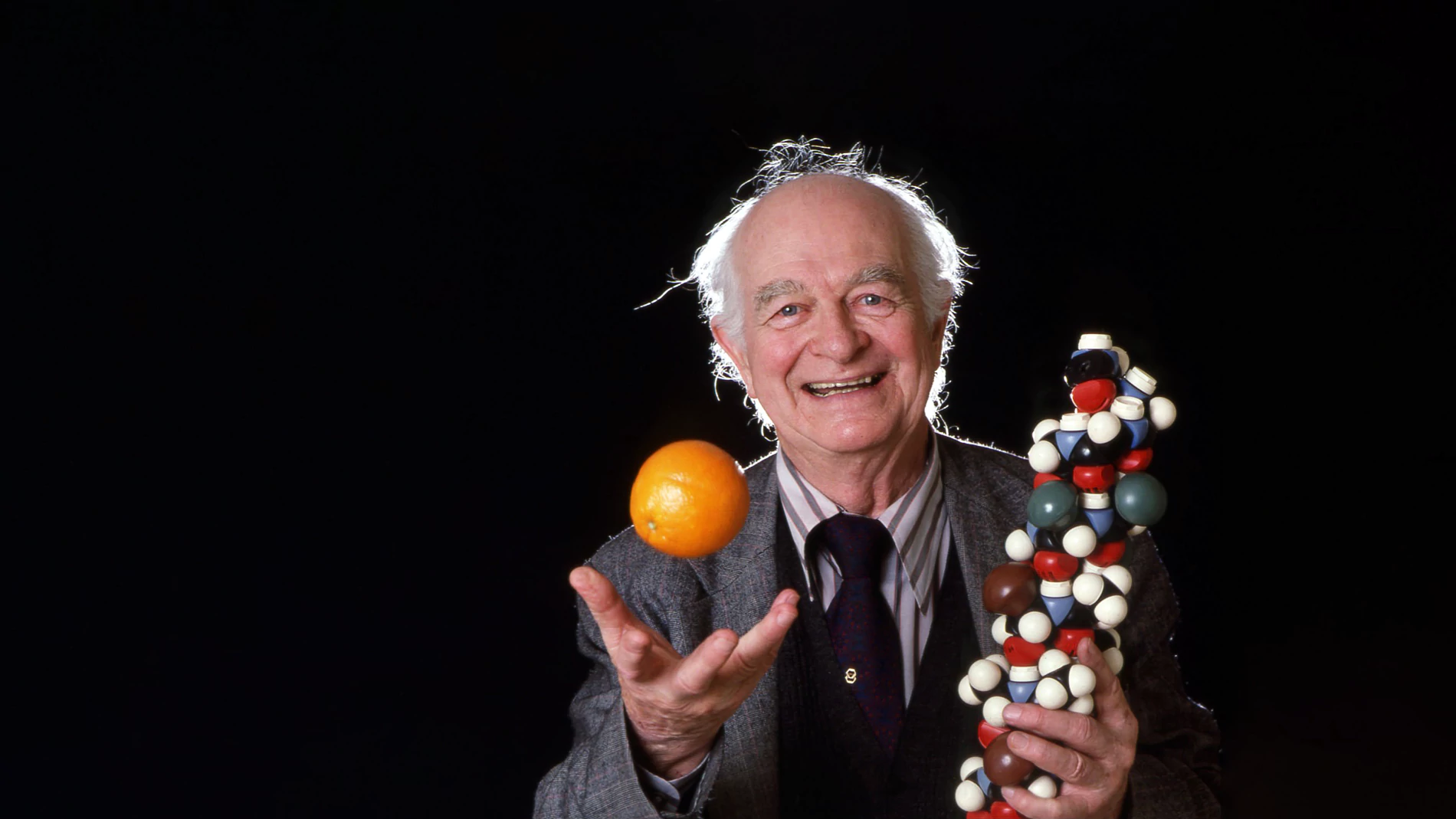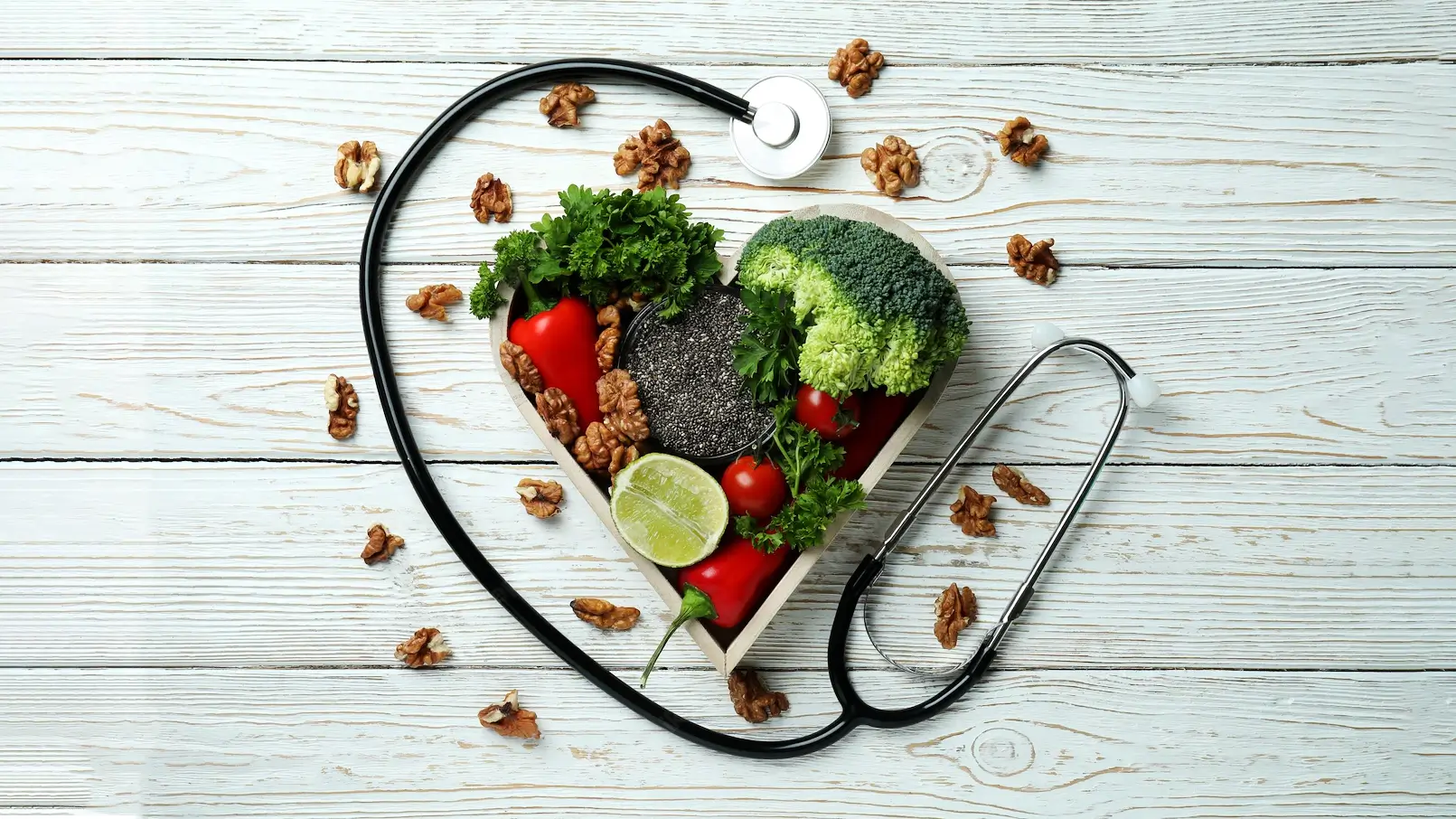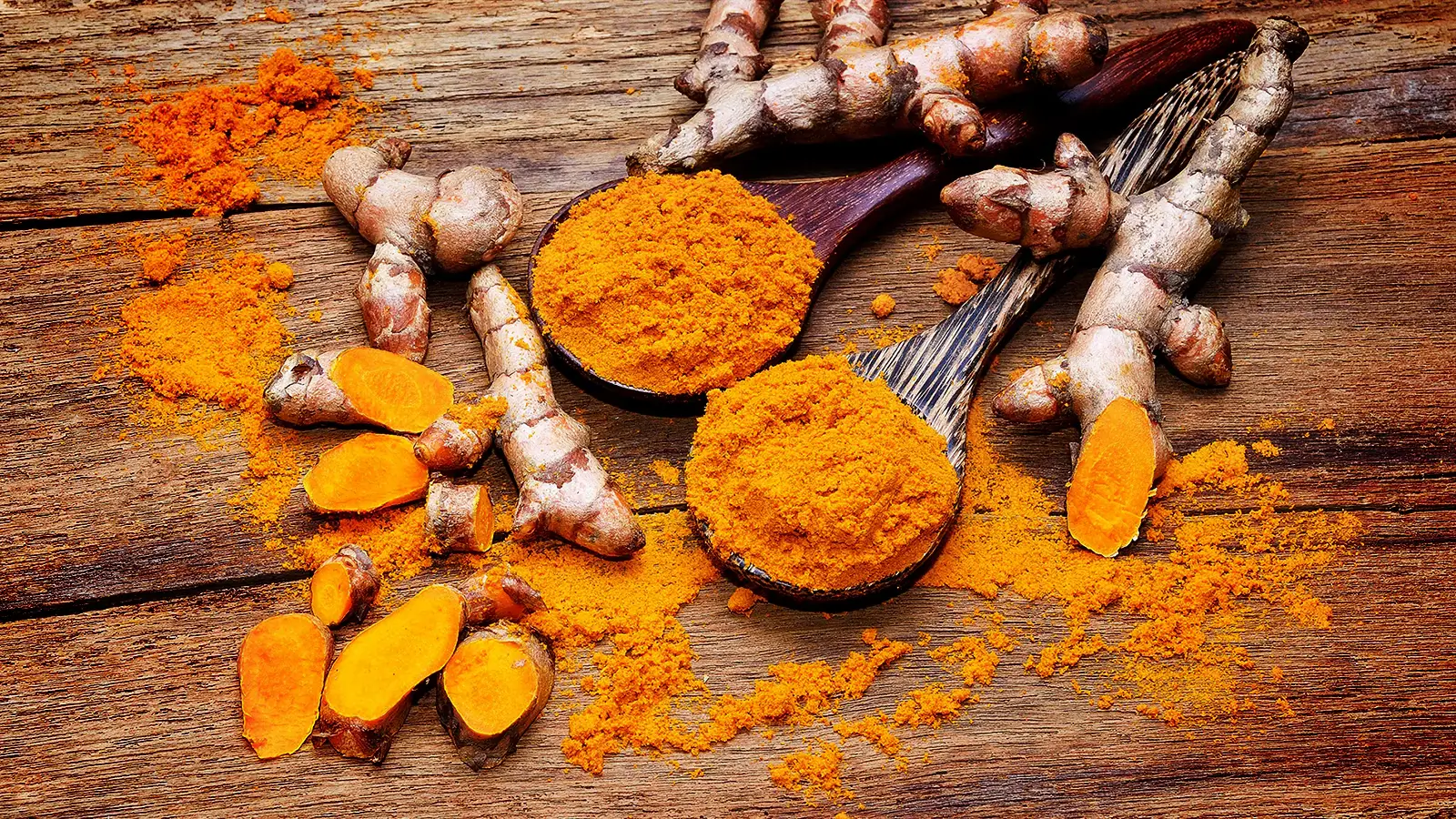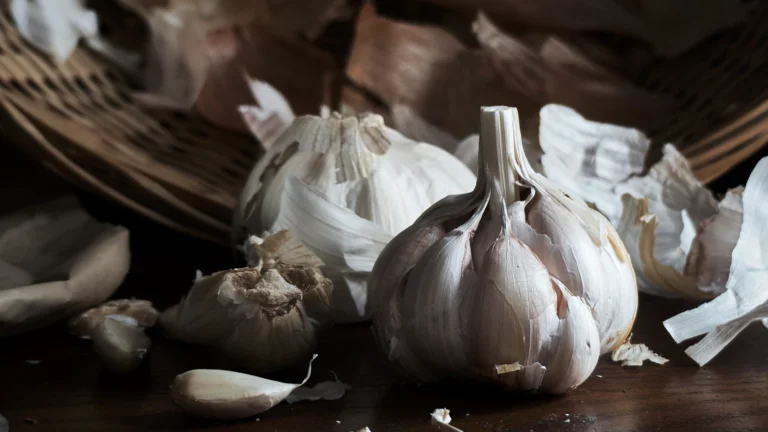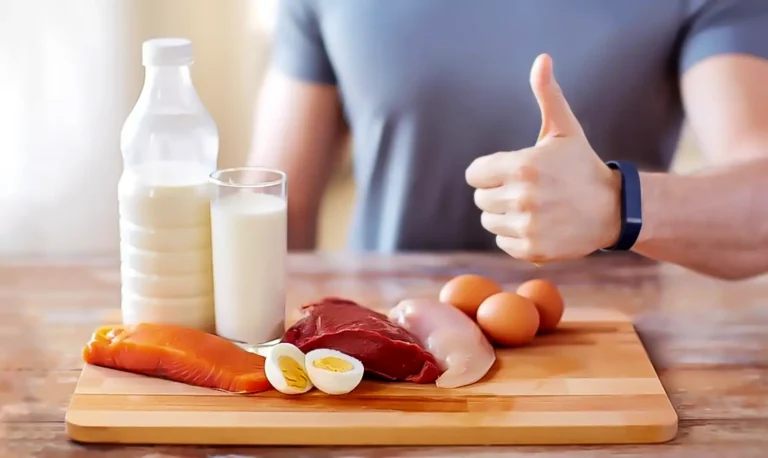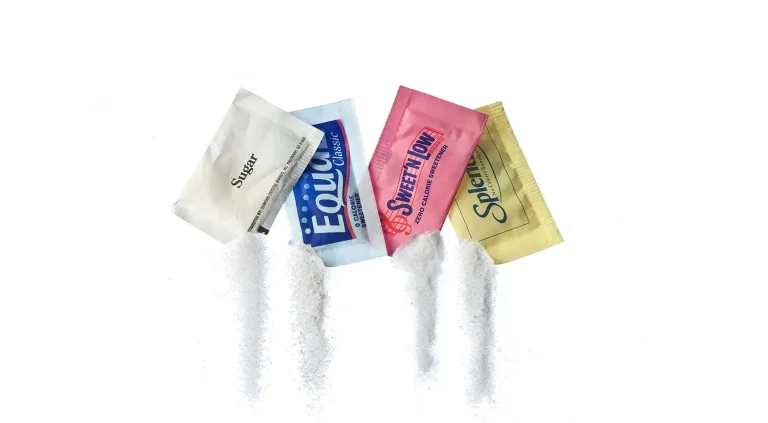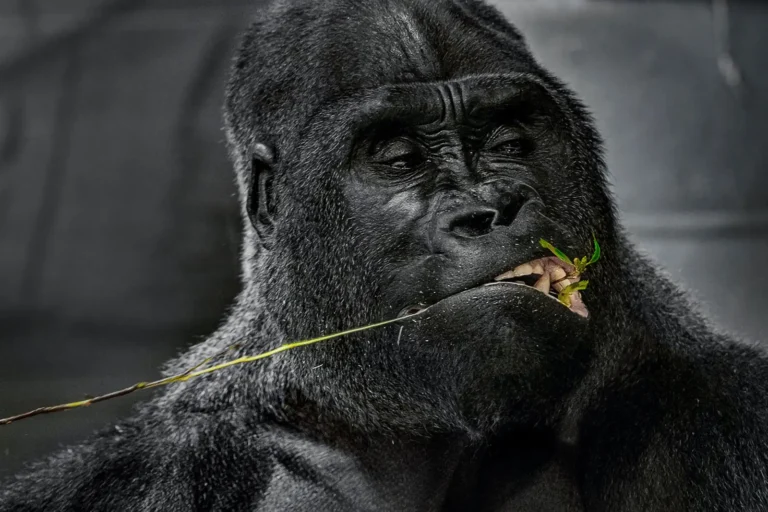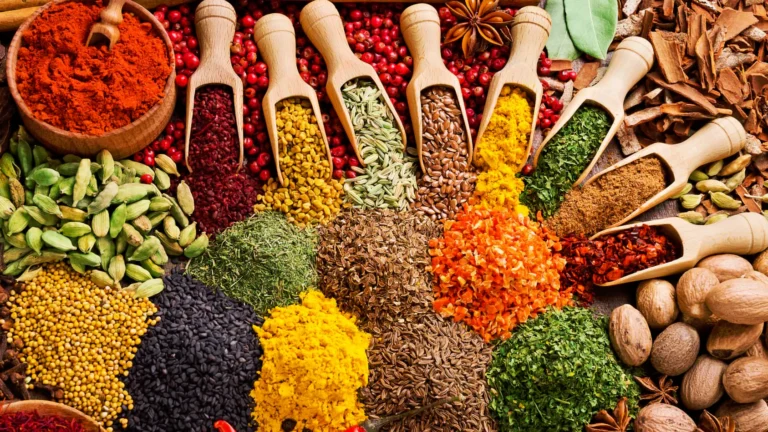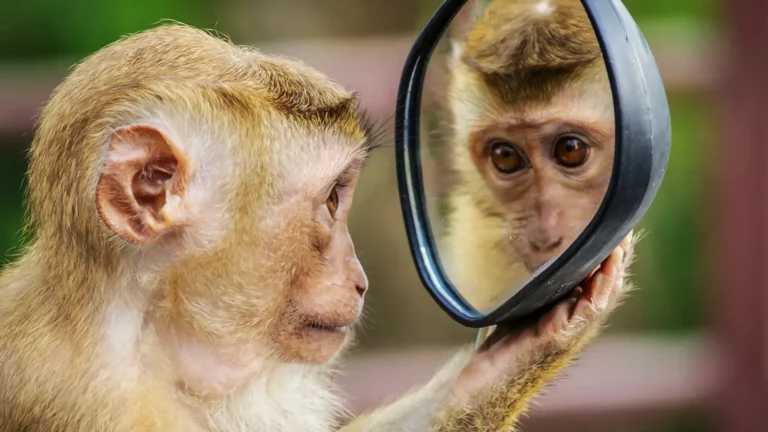Pouvoir Anticancéreux des Fruits et Légumes : Preuves in Vivo et Cliniques
Certains extraits végétaux rivalisent avec les principaux médicaments de chimiothérapie et ciblent en même temps plusieurs types différents de cellules cancéreuses.
Milos Pokimica
Écrit par : Milos Pokimica
Examiné Médicalement Par : Dr. Xiùying Wáng, M.D.
Mis à jour le 10 juin 2023Principaux Enseignements :
Dans le modèle animal, l'injection quotidienne d'extrait d'ail a complètement guéri toutes les souris des modèles de cancer les plus agressifs en 21 jours. Ces tumeurs malignes agressives ne peuvent pas encore être guéries par les thérapies conventionnelles.(Li et al., 2008).
- Les fruits et les légumes sont bons pour lutter contre le cancer car ils contiennent des substances phytochimiques et des antioxydants qui peuvent prévenir ou tuer les cellules cancéreuses, renforcer le système immunitaire et désintoxiquer l'organisme.
- Certains fruits et légumes sont plus efficaces que d'autres, comme les épinards, les betteraves, l'ail et les légumes crucifères. Vous devriez manger plus de fruits et de légumes chaque jour pour réduire votre risque de cancer et améliorer votre santé.
Phytochimiques vs antioxydants.
Après avoir tout lu sur les composés phytochimiques et les antioxydants, vous pourriez avoir l'impression qu'il s'agit de la même chose.
Antioxydants sont les plus importants phytochimiques pour la santé humaine, mais en fait, la plupart des composés phytochimiques n'ont pas de propriétés antioxydantes.
Les scientifiques estiment qu'il existe plus de 5000 composés phytochimiques.
Il y a énormément de recherches en cours sur eux, et dans les cas où une substance s'avère bénéfique, ce produit chimique peut être breveté et vendu comme médicament avec un nom différent ou utilisé pour fabriquer un supplément. Il y a 5000 autres médicaments potentiels sur le marché. Certains peuvent être utiles et se sont avérés bénéfiques dans différentes maladies et en général en tant que substances favorisant la santé.
Certaines plantes, lorsqu'elles sont testées, ont une force antioxydante moyenne mais sont très efficaces pour lutter contre différents types de maladies, et elles le font sans aucune propriété antioxydante.
Selon la maladie ou l'affection que nous voulons prévenir ou aider à guérir, nous pouvons examiner la science disponible. Par exemple, en raison de toute la toxicité de l'environnement et d'une mauvaise alimentation, le cancer est devenu une épidémie, tout comme les maladies cardiovasculaires. La prévention par l'alimentation est une option raisonnable, notamment en cas de prédisposition génétique et d'antécédents familiaux.
Pouvez-vous réduire le risque de cancer avec un régime alimentaire ?
La prévention du cancer par l'alimentation est ce à quoi nous devons penser car une fois que le cancer est visible sur un scanner, dans la plupart des cas, il est trop tard.
Dans la plupart des cas, le régime alimentaire ne permet pas de guérir le cancer, mais il peut servir de moyen de prévention.
Manger ces aliments seuls ne peut pas guérir le cancer, et je vais l'écrire encore : ce n'est pas l'impression que je veux donner dans cet article. Nous parlons seulement de réduire notre risque global de cancer à titre préventif.
Cet article ne traite pas non plus d'autres facteurs qui peuvent influencer le risque de cancer, tels que la génétique, le mode de vie, l'environnement, etc. Nous parlerons de ces facteurs dans des articles connexes.
De plus, à ma connaissance, il n'y a pas d'effets secondaires scientifiquement reconnus de la consommation de fruits et de légumes en ce qui concerne le traitement du cancer. Vous devrez parler à votre oncologue des risques potentiels d'effets secondaires liés à la consommation de fruits et légumes.
Il existe de nombreux effets secondaires ou interactions potentiels de ces aliments avec d'autres médicaments ou traitements en plus du cancer, mais cela dépasse le cadre de cette analyse. Vous devez parler à votre médecin agréé ou oncologiste sur les effets secondaires potentiels et les risques liés aux médicaments et aux traitements.
Taux de cancer et causes héréditaires.
Dans la population générale, le nombre de personnes qui mourront d'un cancer est d'environ 22 %. C'est la deuxième cause de décès après les maladies cardiaques.
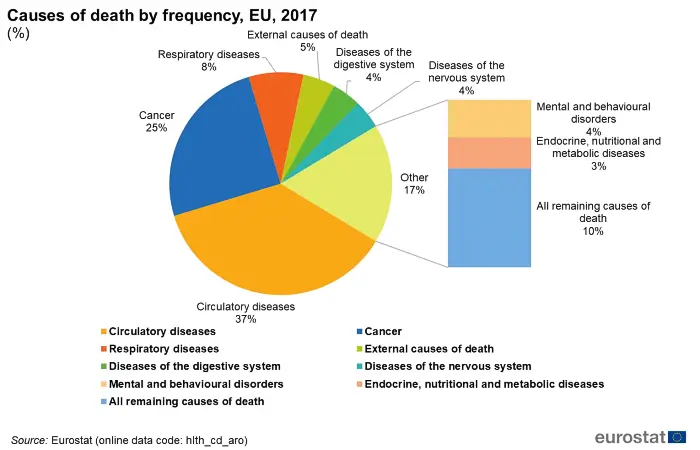
Il n'y a que quelques pour cent de tous les patients atteints de cancer qui connaîtront une régression complète. Ces personnes ont généralement des formes de cancer moins mortelles, changent complètement leur régime alimentaire et subissent des opérations contre le cancer dès le début. Si nous examinons les statistiques, nous nous rendrons compte qu'une personne sur quatre qui meurt d'un cancer n'est pas due à de mauvais gènes. La génétique ne souligne pas cette condition. Les causes purement génétiques, telles qu'elles sont rapportées par la médecine traditionnelle, ne représentent que 2 à 3 % de tous les cas de cancer. Certaines estimations plus prudentes suggèrent que les causes purement héréditaires sont de l'ordre de 5 à 10 % (The Genetics of Cancer, 2022b). Cette information n'est pas nouvelle et elle est acceptée par la communauté scientifique. Cependant, elle n'aime pas en parler abondamment car elle devrait expliquer les causes exactes de l'épidémie de cancer, ce qui n'est pas dans l'intérêt des firmes pharmaceutiques. La prévention du cancer est un sujet qui est principalement relégué aux bilans de santé et aux dépistages. La véritable prévention du cancer passe par l'alimentation et le mode de vie. Il ne s'agit pas d'une simple interprétation de ma part. Plusieurs études ont été menées sur ce sujet.
Selon une étude réalisée par David Wishart, professeur à l'université d'Alberta, les cancers héréditaires ne représentent que cinq à dix pour cent de l'ensemble des cancers (Wishart, 2022). Les 90 à 95 % restants sont dus à une mauvaise adaptation à notre mode de vie moderne, c'est-à-dire à une mauvaise alimentation et à la toxicité de l'environnement, ainsi qu'à un mode de vie incongru du point de vue de l'évolution, caractérisé par un manque d'autophagie et d'exercice physique. Cette inadaptation, en dehors des facteurs génétiques héréditaires, déclenche également des mutations génétiques (Wishart, 2022). Ces données suggèrent que le cancer n'est pas aussi purement génétique qu'on le pensait (Wishart, 2022).
D'autres sources soutiennent également cette affirmation, comme l'Institut national du cancer (The Genetics of Cancer, 2022c) et l'American Cancer Society (Family Cancer Syndromes | American Cancer Society, nd-b), qui indiquent que seulement 5 à 10 % de tous les cancers sont connus pour être fortement liés à des défauts génétiques (appelés mutations) hérités d'un parent.
Cette épidémie est causée par une mauvaise adaptation à notre environnement actuel, ou en d'autres termes, l'alimentation constitue le reste. Pour être encore plus précis, surcharge toxique et protéines animales.
La fréquence standard des mutations cancéreuses.
Vous ne le savez peut-être pas, mais vous luttez actuellement contre le cancer. J'ai aussi un cancer. Chaque espèce sur Terre a un certain pourcentage de cellules qui ont subi une sorte de mutation.
Nous avons tous des cellules cancéreuses, mais notre système immunitaire les traite à temps. Dans des conditions normales, il y a généralement une cellule mutante nouvellement générée pour quelques millions de cellules ordinaires. Étant donné que le corps humain est composé de 10 000 milliards de cellules, nous avons toujours une colonie assez importante de cellules cancéreuses dans notre corps (Pietrangelo, 2020b), (Drake et al., 1998). Environ 10 millions d'entre elles sont cancéreuses à un moment donné. Cela signifie que seule une cellule sur un million dans notre corps est cancéreuse. C'est très peu. Mais c'est suffisant pour causer des problèmes.
Mais nous ne sommes pas les seuls dans ce cas. Les cellules cancéreuses ne sont pas l'apanage de l'homme. Elles affectent tous les êtres vivants de la planète, des bactéries aux plantes en passant par les animaux. En fait, les animaux ont plus de cellules cancéreuses que nous. Selon un article scientifique (Drake et al., 1998), les animaux ont environ deux fois plus de cellules cancéreuses que nous, en moyenne. Cela signifie qu'une cellule sur un demi-million dans leur corps est cancéreuse. Le problème avec ce fait est que les animaux n'ont pas un taux de cancer ou de mortalité plus élevé que les humains en moyenne. Il n'y a aucune espèce dont un membre sur quatre meurt du seul cancer. Cette épidémie de cancer n'est pas causée par de mauvais gènes. Elle est causée par d'autres facteurs.
.Système immunitaire et autophagie.
C'est le système immunitaire et l'autophagie qui dévorent ces cellules avant qu'elles ne se surpeuplent. C'est la vraie vérité.
Lorsque le cancer forme une masse, il devient une toute autre bête qui trompe le système immunitaire pour qu'il ne le reconnaisse pas par différentes méthodes.
Ce n'est que lorsque le système immunitaire est incapable de détruire ces cellules malignes à temps que le cancer progresse pour devenir une maladie à part entière. Par exemple, les patients atteints du SIDA développent généralement trois types de cancers extrêmement rares : Lymphome non hodgkinien (LNH, également connu sous le nom de lymphome lié au SIDA ou ARL), le sarcome de Kaposiet le cancer du col de l'utérus. Quarante pour cent des patients séropositifs développent l'un de ces cancers, selon "HIV Infection and Cancer Risk".
Qu'est-ce qui affaiblira le système immunitaire ?
La plus évidente serait l'inflammation chronique qui affecte une grande partie de la population en raison d'une alimentation inadéquate remplie de viande morte, d'endotoxines bactériennes, de pesticides, d'hormones et de sous-produits de protéines acides toxiques.
Le numéro deux serait le manque chronique de nutriments anti-inflammatoires comme les antioxydants et autres composés phytochimiques qui exacerbent le premier problème.
Et puis il y a carences en nutriments.
Il y aurait alors une surcharge toxique due aux mutagènes environnementaux résultant de la bioamplification des polluants organiques persistants dans la chaîne alimentaire. Plus de 80% de l'exposition aux pesticides dans le régime alimentaire américain standard provient des produits animaux, et non des légumes pulvérisés. Les pesticides sont lipophiles et s'accumulent dans la chaîne alimentaire, et les aliments pour animaux sont également pulvérisés. C'est sans compter la pollution de l'environnement.
Ensuite, il manque complètement les niveaux d'un niveau adéquat d'autophagie par trois repas par jour, pratique standard. Chez toutes les espèces de primates, la faim périodique fait partie de la vie normale.
Pour conclure l'affaire, il y a taux d'IGF-1 chroniquement élevés en raison de la consommation de protéines animales ou, plus précisément, de protéines complètes. Les personnes qui suivent un régime à base de plantes peuvent annuler toutes les propriétés préventives du cancer en ajoutant des sources de protéines de haute qualité comme le soja, par exemple.
Médicament breveté.
Aujourd'hui, il n'y a pas de recherche de haut niveau et considérablement importante sur les propriétés anticancéreuses des légumes communs. Il n'y en a jamais eu. La plupart des investissements vont aux médicaments brevetés. Quelques études rares sont ce que nous recherchons. Ce qui se passe généralement en médecine allopathique, c'est que la première ligne d'études se fait uniquement avec des extraits végétaux in vitro. Ensuite, ces extraits sont étudiés dans un modèle animal in vivo. S'ils montrent une efficacité réelle, ils sont ensuite étudiés avec un seul objectif : extraire une seule substance qui montre le plus d'efficacité contre un type de cancer et l'utiliser en chimiothérapie en tant que médicament breveté.
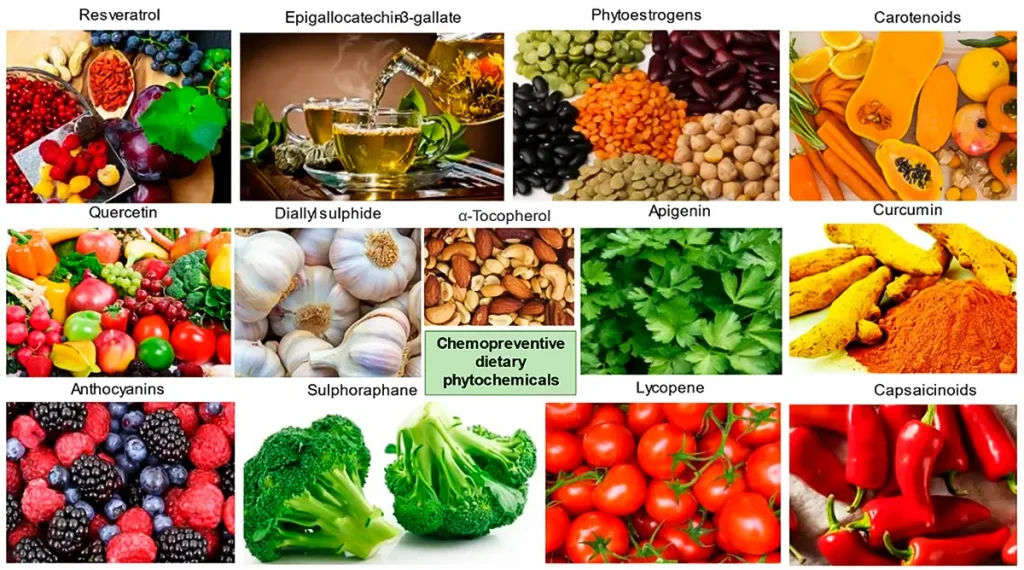
Cela signifie que des études scientifiques sont encore en cours pour déterminer les actions biochimiques de ces substances phytochimiques avant de les breveter. Dire, par exemple, que les légumes crucifères combattent le cancer n'est pas de la médecine alternative. C'est de la médecine allopathique : des recherches financées par des milliards de dollars à des fins de brevetage. Aujourd'hui encore, la plupart des chimiothérapies ne sont que des produits phytochimiques à base de plantes brevetés. Ils n'aiment tout simplement pas que les gens utilisent la médecine alternative et, dans la plupart des cas, ils seront étiquetés comme des charlatans.
Aujourd'hui, plus de 50 % des médicaments sont extraits sous forme de composés phytochimiques et ne sont pas créés à partir de zéro (Newman et al., 2007). Par exemple, dans le traitement du cancer, selon Huang et al., 2021, 73 % ne sont pas synthétiques et 47 % sont des produits entièrement naturels ou directement dérivés de produits naturels.

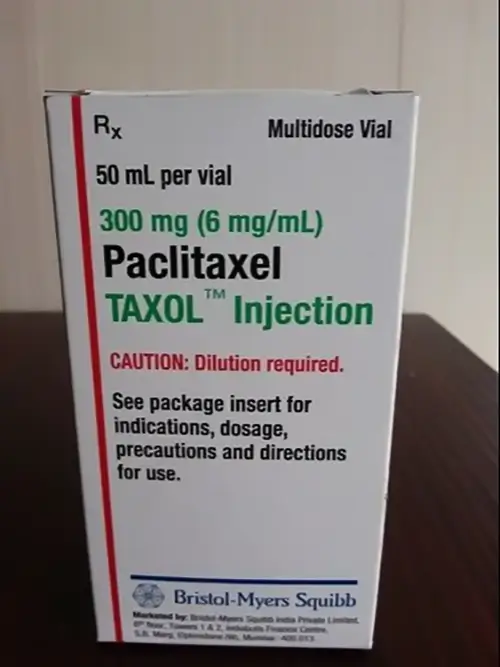
Le Taxol, le médicament de chimiothérapie révolutionnaire qui a été largement popularisé, n'est littéralement que de l'écorce séchée grattée de l'if du Pacifique. Ils ont réussi à trouver un moyen de faire pousser des cellules d'arbres dans un laboratoire pour extraire ce phytochimique. Jusque-là, ils payaient des gens pour aller gratter l'écorce des arbres.
Fruits et légumes.
Si nous examinons les recherches sur les plantes capables de combattre le cancer, nous serons surpris du résultat, car certaines plantes sont des sources d'antioxydants beaucoup plus puissantes.
Cela ne signifie pas que les antioxydants eux-mêmes ne combattent pas le cancer. Cela signifie simplement que ces plantes possèdent des substances phytochimiques uniques qui ont des réactions biochimiques qui suppriment fortement la croissance des cellules cancéreuses, en dehors de toute activité antioxydante.
C'est en fait une très bonne nouvelle car nous pouvons les ajouter à notre alimentation en plus de toutes les sources alimentaires riches en antioxydants que nous mangeons déjà pour avoir un effet synergique supplémentaire.
Tableau 1. Les plantes médicinales utilisées dans la chimioprévention du cancer et leur rôle thérapeutique.
| Nom commun | Nom botanique | Rôle thérapeutique | Type de cancer |
|---|---|---|---|
| Groseille indienne | Phyllanthus emblica | Immunomodulateur, cytoprotecteur | Cancer du sein |
| Ail | Allium sativum | Anticancéreux, immuno-stimulant | Cancer de l'œsophage, colorectal |
| Curcuma | Le curcuma est long | Anti-inflammatoire, anticancéreux; chimio-résistance | Cancer du sein |
| Pomme de mai commune | Podophyllum peltatum | Anti-cancéreux | Testicule, cancer du poumon |
| Plante de graine de lune Heartleaf | Tinospora cordifolia | Immunomodulateur, antioxydant, anticancéreux | Cancer du col de l'utérus |
| Roi des amers | Andrographis paniculata | Stimulateur immunitaire | Leucémie, côlon, cancer du sein |
| Atemoya | Annona atemoya | Anti-cancéreux | Poumon, côlon, cancer du sein |
| Brise-pierre | Phyllanthus amarus | Arrêt du cycle cellulaire, réparation de l'ADN, anti-angiogénique | Poumon |
| Amruta | Mappia foetida | Antinéoplasique | Leucémie, lymphome, col de l'utérus |
| Cerise d'hiver | Withania somnifera | Anti-inflammatoire, antitumoral, antioxydant, immuno-modulateur | Leucémie |
| Cèdre de l'Himalaya | cèdre deodara | Induction de l'apoptose | Leucémie |
| Graine de lune à feuilles de cœur | Tinospora cordifoliiun | Cytotoxique | Cervical |
| corossol | Annona muricata | Cytotoxique | Sein |
| Rosier châtaignier | Rosa roxburghii | Immunomodulateur, anti-âge | Oesophagien, gastrique, pulmonaire |
| Joyau Vigne | Derris escalade | Radiosensibilisant | Côlon |
| Cure noire | Goniothalamus macrophyllus | Induction de l'apoptose | Cervical |
| Quai Dong | Angélica sinensis | Cytotoxique | Leucémie |
| Cang Zhu | Atractylis lancea | Apoptotique, cellule arrêt de cycle | Foie |
| Milkvetch mongol | Astragalus membranaceus | Immunomodulateur | Leucémie myéloïde |
| Théier | Camellia sinensis | Antioxydant, antitumoral, antibactérien, antimutagène | Sein, poumon, côlon, peau |
| Buisson feu-flamme | Woodfordia fruticosa | Cytotoxique | Poumon, côlon, foie, Neuroblastome |
| Araignée rouge | Boerhaavia diffusa | Cytotoxique, anticancérigène | Cervical |
| Arbre à fromage parapluie | Glochidion zeylanicum | Cytotoxique | Prostate, foie, côlon |
| Morelle noire | Morelle noire | Antimicrobien, antioxydant, cytotoxique, antiulcérogène, hépatoprotecteur | Cervical |
| Chaga | Oblique inconnue | Anti-cancéreux | Poumon, sein, cervicale, estomac |
Certains légumes sont si efficaces pour lutter contre le cancer qu'ils peuvent rivaliser avec n'importe quel médicament de chimiothérapie de pointe et, en même temps, cibler plusieurs types différents de cellules cancéreuses. Dans cette étude (Boivin et al., 2009), ils ont testé 34 légumes différents sur la prolifération de huit lignées de cellules tumorales in vitro. Ils ont utilisé un extrait de légume et l'ont appliqué goutte à goutte sur différents types de cellules cancéreuses afin d'observer un effet sur la croissance du cancer.
Résultats de l'étude.
Cette étude a été réalisée in vitro. Cela signifie que la biodisponibilité pourrait être un problème. Certains de ces légumes anticancéreux pourraient ne pas donner de bons résultats lors d'expériences en direct. Cela signifie également que d'autres légumes qui ont montré peu d'effet in vitro auront encore peu d'effet même in vivo dans un régime alimentaire normal. Cela pourrait nous donner une première référence sur nos choix de consommation.
Deuxièmement, cela signifie également que, comme tous les légumes testés n'étaient pas toxiques pour les cellules normales et ne présentaient leur toxicité que pour les cellules cancéreuses, il n'y aurait pas d'effets secondaires négatifs si l'industrie décidait de les tester en injection directe sur des animaux vivants. Et c'est exactement ce qu'ils ont commencé à faire l'année dernière. Certains de ces extraits de plantes ont pu tuer 100 % des cellules cancéreuses incurables chez la souris.
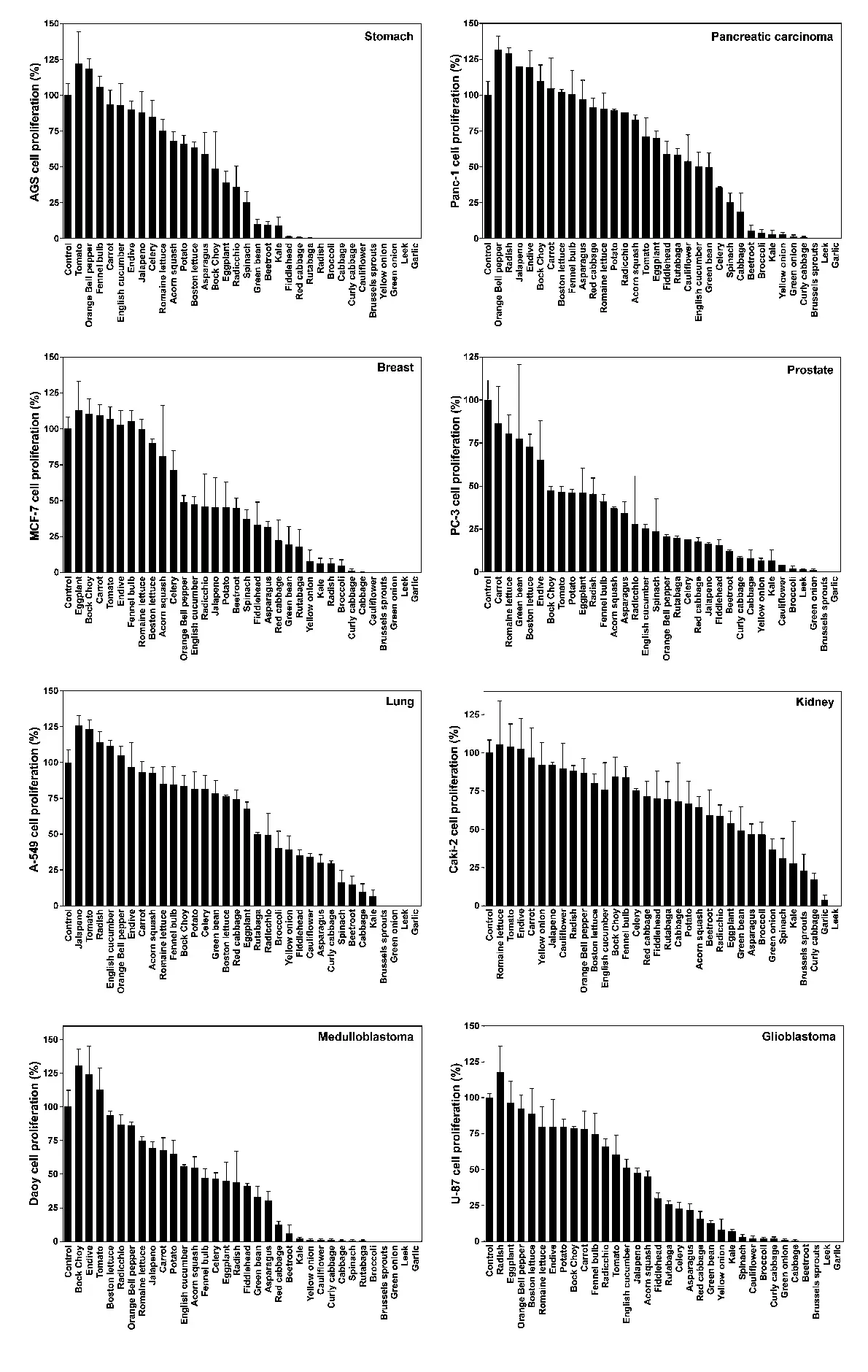
Épinards et betteraves.
De tous les légumes à feuilles vertes que les gens utilisent couramment, les épinards sont l'un des meilleurs. Il est numéro deux sur la liste dans la lutte contre les tumeurs cérébrales pédiatriques, supprimant la croissance des tumeurs cérébrales de près de 100 %. Les épinards et les betteraves sont globalement bons pour combattre tous les types de cancers. Ils ne sont pas aussi bons que les oignons ou le chou frisé, mais comparés aux autres légumes, ils devraient être notre troisième choix sur une liste d'épicerie. D'autre part, tous les légumes combattront toujours les cellules cancéreuses, mais à des niveaux de suppression de 10 à 40 %. L'une des raisons pour lesquelles vous devriez consommer des épinards est leur teneur en lutéine. Le problème avec les épinards, c'est qu'ils contiennent acide oxalique, utilisez donc les bébés épinards en complément du chou frisé et d'autres légumes plus puissants.
Dans cette autre étude, qui porte le même nom mais qui est différente, les épinards ont montré l'effet inhibiteur le plus élevé de tous les légumes testés. Il s'agissait d'un modèle humain in vitro. Des cellules cancéreuses du foie humain ont été utilisées pour les tests. Après les épinards, ce sont le chou, le poivron rouge, l'oignon et le brocoli qui ont le plus d'effet (Chu et al., 2002).
Les épinards font l'objet d'une série de recherches spécifiques. Les résultats d'autres études sur les propriétés anticancéreuses des épinards ont permis d'isoler deux glycolipides : le mono galactosyl diacylglycérol (MGDG) et le sulfoquinovosyl diacylglycérol (SQDG), en tant qu'inhibiteurs sélectifs de l'activité de l'ADN polymérase (Maeda, N et al., 2011).
En ce qui concerne la consommation de betteraves, la science ne dispose pas encore d'études plus approfondies.
La plupart des études in vitro et in vivo ont donné des résultats prometteurs ; cependant, les mécanismes moléculaires qui sous-tendent les effets chimiopréventifs et chimioprotecteurs de la betterave n'ont pas été complètement élucidés (Tan et al., 2021).
Fermentation.
À l'époque, avant la réfrigération, les seuls sodas disponibles étaient des boissons fermentées. Les gens fermentaient tout, pas seulement le lait. Les jus de légumes ou de fruits étaient fermentés et utilisés comme rafraîchissements non alcoolisés. Ces boissons étaient pleines de composés phytochimiques et de nutriments provenant de fruits et de légumes et avaient également des propriétés probiotiques.
Une étude m'a plu, qui visait à examiner les propriétés anticancéreuses et antioxydantes des boissons. Les chercheurs ont examiné les effets antioxydants et anticancéreux de la fermentation du jus de betterave rouge par des grains de kéfir d'eau. Le jus de betterave rouge ayant subi une fermentation présentait une population bactérienne viable plus élevée, un pH plus bas et une teneur en sucre plus faible. Après un jour de fermentation, il présentait une capacité antioxydante et une activité anticancéreuse accrues contre les cellules d'hépatome humain. Les augmentations des activités antioxydantes et anticancéreuses étaient positivement corrélées avec les teneurs en bétalaïnes (Wang et al., 2022). Les bétalaïnes sont des pigments hydrosolubles présents dans les betteraves et qui donnent les couleurs rouge-violet (bétacyanines) et jaune (bétaxanthines).
Je mentionnerai cette étude ici pour les personnes qui souhaitent utiliser le type de jus de légumes de la thérapie Gerson pour la prévention du cancer. Vous pourrez peut-être augmenter la puissance de votre thérapie par fermentation. La fermentation pourrait être en mesure, et ce n'est que ma spéculation, d'augmenter la biodisponibilité de certains composés phytochimiques. En dehors du jus de betterave, des recherches supplémentaires doivent être effectuées.
Regardez la vidéo ci-dessous pour apprendre à faire du soda au jus de betterave probiotique au kéfir d'eau fait maison, qui contient des niveaux plus élevés d'antioxydants et de probiotiques que le jus de betterave frais. Et c'est rafraîchissant et savoureux et un meilleur substitut aux boissons gazeuses sucrées.
Concombres, laitue, tomates, pommes de terre, carottes et autres …
Les concombres, la laitue, les tomates, les pommes de terre et les carottes - tous les légumes que les gens aiment le plus manger - sont très faibles en termes de prévention du cancer et d'antioxydants.
La plupart des légumes et des fruits les plus couramment consommés par les gens n'ont aucun ou très peu d'effet.
Il existe des liens entre différents légumes et des types de cancer spécifiques. Par exemple, il existe un lien entre la consommation de tomates et un risque réduit de cancer de la prostate. C'est l'un des cancers les plus meurtriers. Cependant, lors de la prise de lycopène sous forme extraite en complément, les bénéfices disparaissent, probablement parce que il existe des synergies phytochimiques dans la tomate en tant qu'aliment complet.
La science n'a pas étudié tous les effets corrélés de tous les légumes différents dans toutes les lignées cellulaires cancéreuses. C'est étrange, compte tenu du nombre de cas et de décès causés par le cancer. C'est l'une des raisons pour lesquelles nous devrions intégrer différents aliments dans notre alimentation. Néanmoins, en dehors de ces légumes les plus courants ayant de faibles effets anticancéreux, il y a certains légumes que nous devrions manger tous les jours uniquement en raison de leurs propriétés anticancéreuses. En raison de l'épidémie de cancer à laquelle nous sommes confrontés, cela devrait être de notoriété publique dans tous les foyers, en particulier dans les familles ayant des antécédents de cancer. Ces légumes sont un moyen facile, bon marché et pratique de renforcer notre résistance au cancer si nous ne voulons pas changer nos habitudes alimentaires. Même les personnes suivant un régime alimentaire complet à base de plantes devraient les incorporer dans leurs recettes quotidiennes. Le plus simple serait de les ajouter à une salade.
Extrait d'ail cru.
Un légume était si puissant que les chercheurs ont été stupéfaits. Il a bloqué 100 % de la croissance des cellules tumorales dans 7 des 8 tumeurs testées (Boivin et al., 2009).
Il était si puissant que les chercheurs ont voulu le tester sur des cellules normales parce qu'ils pensaient qu'il contenait des composés phytochimiques toxiques qui empêchaient tout type de cellules de se multiplier, pas seulement les cellules cancéreuses. Ils l'ont testé sur des cellules normales et la croissance cellulaire n'a pas du tout été affectée. C'est un légume qui cible uniquement les cellules cancéreuses, laissant les cellules normales seules, et le seul effet secondaire est une augmentation de la fonction immunitaire, contrairement à la chimiothérapie régulière.
C'était de l'extrait d'ail cru. Il était si fort qu'il rivalisait avec les principaux médicaments de chimiothérapie, et il est sélectif. Il sort et attaque les cellules cancéreuses, laissant les cellules normales seules.
Quelle est la particularité de l'ail ? Rien vraiment, c'est juste plus puissant. L'ensemble du groupe de légumes allium a des composés phytochimiques identiques ou similaires et agira de la même manière. L'ail est juste le légume le plus puissant de tout le groupe. C'est un groupe de légumes allium qui est unique en tant que groupe car il contient des composés phytochimiques anti-cancer uniques.
Famille Allium.
L'ail, les oignons et les poireaux, à mon avis, devraient être ajoutés aux salades quotidiennement juste à cause de cette étude. C'est une découverte importante. Il y a d'autres avantages de l'ail; certains d'entre eux ont fait leurs preuves dans des essais cliniques, mais c'est la découverte la plus importante, peut-être au cours des deux dernières années.
Les extraits végétaux de la famille Allium, pas seulement l'ail, sont de puissants médicaments de chimiothérapie in vitro sans effets secondaires sur les cellules non malignes.
Une gousse d'ail frais ou des oignons ou des poireaux frais est une bonne étape pour préserver la santé, en particulier chez les personnes ayant des antécédents familiaux de cancer. Par exemple, l'ail est le numéro un dans la suppression du cancer du sein. Le problème est la forte odeur qui accompagne l'ail, et cette odeur est exactement ce qui le rend sain. C'est un insecticide naturel qui se forme lorsque quelque chose commence à mâcher dessus. Il n'y a qu'une seule façon de tirer profit de l'ail et des autres plantes de la famille des alliums, et c'est de les manger crus ou de les couper et de les écraser crus, puis de les manger sans chauffage. Le chauffage détruira les enzymes qui combattent le cancer.
Légumes crucifères.
D'autres types de légumes qui sont bons pour lutter contre le cancer en plus du groupe allium sont les légumes crucifères.
Le chou frisé, le chou, le chou rouge, le chou-fleur, le brocoli, le rutabaga et le chou de Bruxelles. Seul le bok choy n'a pas montré de potentiel dans ce groupe. C'est un cas particulier. Les légumes crucifères contiennent de nombreux composés phytochimiques, à commencer par le sulforaphane. Comme l'ail, ils doivent être coupés ou mâchés crus avant d'être cuits afin que ces substances chimiques bénéfiques, saines et combattant les insectes, comme le sulforaphane, puissent se former. J'ai déjà parlé des bienfaits du sulforaphane dans cet article (Sulforaphane- Le Superpouvoir du Brocoli).
Ce sont les deux groupes qui sont les plus efficaces dans la prévention du cancer, et le reste des légumes est bien en dessous de ces deux en termes d'efficacité. Ces deux groupes, avec les épinards et les betteraves, sont les légumes à choisir pour notre alimentation.
Il n'y a pas de superstars des antioxydants, mais il n'y a pas lieu de le faire. La liste des avantages que ces deux groupes de légumes apportent est longue et sérieuse. Je ne vais pas analyser tous les essais cliniques et les avantages pour la santé. Je dirai seulement ceci : s'il n'y a qu'un seul avantage à en tirer et rien d'autre, si ces légumes ne sont bons que pour la prévention du cancer et rien d'autre, à mon avis, en raison des niveaux de cancer dans notre société, les incorporer dans le régime alimentaire sur une base quotidienne est un choix raisonnable juste comme une forme de prévention du cancer. La conclusion de l'étude est la suivante :
"Les extraits de légumes crucifères ainsi que ceux de légumes du genre Allium ont inhibé la prolifération de toutes les lignées cellulaires cancéreuses testées alors que les extraits de légumes les plus couramment consommés dans les pays occidentaux étaient beaucoup moins efficaces. L'effet antiprolifératif des légumes était spécifique aux cellules d'origine cancéreuse et s'est avéré largement indépendant de leurs propriétés antioxydantes. Ces résultats indiquent donc que les légumes ont des activités inhibitrices très différentes vis-à-vis des cellules cancéreuses et que l'inclusion de légumes crucifères et d'Allium dans l'alimentation est essentielle pour des stratégies de chimioprévention diététiques efficaces."
Il est bien connu que les légumes crucifères contiennent des substances bioactives qui, dans divers modèles cellulaires, activent Nrf2, un suppresseur de tumeur potentiel. Le facteur nucléaire kappa B (NF-κB) et la protéine activatrice 1 (AP-1) sont deux exemples de facteurs de transcription oncogènes dont différentes études ont montré qu'ils étaient inhibés par les isothiocyanates (substances phytochimiques présentes dans les légumes crucifères) (Thomson et al., 2010). Les composés phytochimiques des légumes crucifères sont connus pour déclencher la mort cellulaire des cellules cancéreuses. Il est également prouvé qu'ils sont de puissants modulateurs de l'expression des gènes. Ils suppriment l'expression de plusieurs gènes impliqués dans la cancérogenèse et augmentent également l'expression de gènes liés à la prévention du cancer.
Cuisson.
Le chauffage est considéré comme destructeur pour les composés phytochimiques.
Dans cette étude, ils ont testé des extraits de chou frisé vert et rouge sur des lignées cellulaires humaines de cancer du côlon (Olsen et al., 2012). Ils voulaient mesurer la diminution des effets anticancéreux de la congélation, du blanchiment et de l'ébullition.
Chez les deux cultivars de chou frisé, la transformation a entraîné une diminution significative des composés phytochimiques totaux et de la capacité antioxydante. Les extraits de chou frisé vert et rouge ont réprimé la croissance des cellules cancéreuses dans les cellules cancéreuses du côlon humain. Néanmoins, l'extrait de chou frais avait un effet anticancéreux significativement plus fort.
Les propriétés anticancéreuses les plus puissantes signalées à ce jour.
Une étude importante a été menée sur les extraits de légumes et de fruits in vivo dans un modèle animal (Li et al., 2018).
Après l'étude déjà mentionnée où l'extrait d'ail a tué la plupart des cellules cancéreuses in vitro, il y avait un mystère quant à la raison pour laquelle l'ail dans la vraie vie n'a pas montré des propriétés anticancéreuses aussi spectaculaires. C'était tellement dramatique que si l'ail est un agent chimiothérapeutique si puissant, il réduirait les taux de cancer, en particulier dans les groupes qui l'utilisent traditionnellement davantage pour la médecine et la cuisine. La seule explication est que c'est à cause de sa faible biodisponibilité des phytochimiques anticancéreux.
Peut-être que le potentiel anticancéreux de l'ail fonctionne mieux lorsqu'il est appliqué directement sur les cellules cancéreuses au lieu d'être absorbé d'abord par les cellules saines. cellules épithéliales tapissant le tractus gastro-intestinal. Si l'extrait d'ail tue toutes les cellules cancéreuses du pain béni sans endommager les cellules régulières, que se passera-t-il si nous injectons simplement le même extrait dans la circulation sanguine ?
C'est exactement ce que cette étude voulait trouver.
"Nous avons testé cette possibilité sur deux modèles murins de maladies très agressives. tumeurs malignes qui ne peuvent pas encore être guéries par les thérapies conventionnelles : sarcome 180 et ascite létale induite par EL4. Oral quotidien gavages d'extrait d'ail cru (RGE ; équivalent à 100 mg de poids humide) pendant 21 jours n'a produit aucun effet significatif chez les souris atteintes de tumeurs malignes. Cependant, l'injection quotidienne des mêmes quantités des mêmes matériaux pendant 21 jours a complètement guéri toutes les souris du cancer."
C'était l'un des cancers les plus incurables qu'ils aient pu trouver. Avec tous les milliards de dollars dépensés chaque année dans la guerre contre le cancer, l'extrait d'ail a guéri l'incurable en 21 jours. Mais seulement avec injection, et cela pourrait être un problème.
Tous les nutriments du repas doivent d'abord être absorbés par les cellules épithéliales tapissant les parois du tractus gastro-intestinal, et le problème est que certains nutriments peuvent être altérés avant d'entrer dans la circulation sanguine. Les enzymes digestives et l'acidité dans les cavités de l'estomac et des intestins peuvent également être nocives.
Ils ont conclu :
"Un nouvel aspect du RGE injecté était sa capacité à guérir les modèles de cancer de souris les plus agressifs qui ne peuvent être guéris par aucune thérapie conventionnelle. Par conséquent, la capacité du RGE injecté à tuer complètement toutes les cellules cancéreuses sans aucun effet secondaire indésirable chez la souris peut représenter l'une des propriétés anticancéreuses les plus puissantes signalées à ce jource qui laisse espérer des effets bénéfiques significatifs en cas d'utilisation chez l'homme".
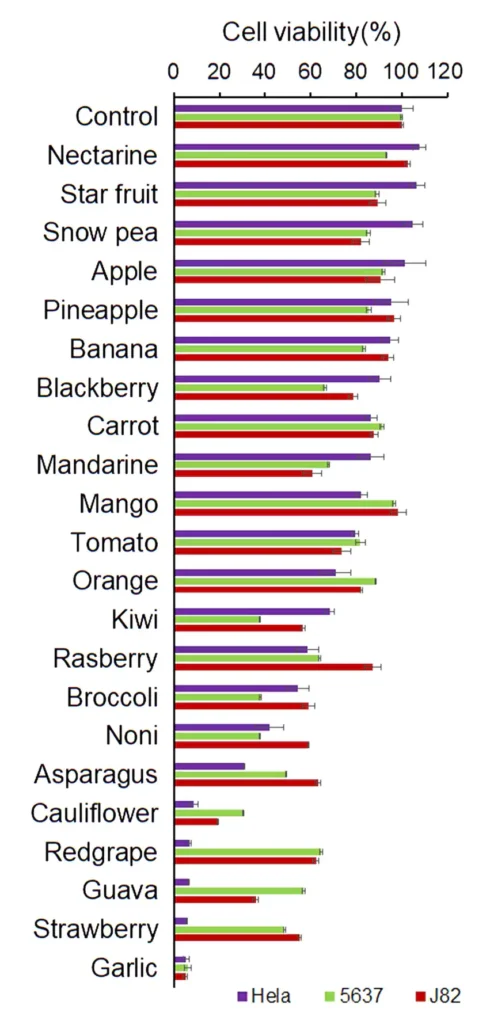
Plusieurs fruits et légumes, tels que les fraises, les raisins rouges, la goyave et le chou-fleur, présentaient également des qualités anticancéreuses similaires à celles de l'extrait d'ail. Le problème était que la plupart d'entre eux n'étaient pas universels. Ils ciblaient beaucoup plus des cancers spécifiques, contrairement à l'extrait d'ail cru. Par exemple, les raisins rouges ciblaient uniquement HeLa (carcinome cervical humain). De plus, les propriétés anticancéreuses de ces extraits crus de légumes et de fruits s'ils sont consommés par voie orale restent à évaluer. Préférablement pas.
Si vous connaissez une personne à risque de cancer, vous voudrez peut-être lui envoyer ce PDF. Il s'agit d'une étude complète au format PDF que vous pouvez télécharger.
https://europepmc.org/backend/ptpmcrender.fcgi?accid=PMC6249268&blobtype=pdf
Cent ans après le drame thérapeutique de Gerson, la médecine allopathique avait enfin pris un virage complet dans une autre direction. Aujourd'hui, ils expérimentent des injections d'extraits végétaux comme remède contre le cancer. À l'avenir, si ces résultats sont confirmés par des études in vivo chez l'homme, nous pourrions voir un type similaire de style de thérapie Gerson qui existait il y a 100 ans. Seulement cette fois, nous aurions des formes beaucoup plus puissantes d'extraits végétaux concentrés par injection. Ou encore des monothérapies phytochimiques isolées brevetées.
Ces découvertes ont une signification clinique encore aujourd'hui en tant que thérapies de prévention scientifiquement prouvées.
"Dying to Have Known" est un documentaire indépendant qui explore la thérapie anticancéreuse de Gerson.
Conclusion :
- Une personne sur quatre qui meurt d'un cancer n'est pas causée par une prédisposition génétique.
- Le système immunitaire et l'autophagie "dévorent" les cellules cancéreuses avant qu'elles ne soient surpeuplées.
- Ce n'est que lorsque le système immunitaire est incapable de détruire ces cellules malignes à temps, et alors seulement le cancer deviendra une maladie à part entière.
- Il existe des études scientifiques qui étudient les actions biochimiques des extraits de fruits et légumes et leurs composés phytochimiques avant de breveter.
- Dans le traitement du cancer, 73 % des médicaments ne sont pas synthétiques, 47 % étant soit des produits entièrement naturels, soit directement dérivés de ceux-ci.
- Il y a des légumes qui sont si bons pour combattre le cancer qu'ils peuvent rivaliser avec n'importe quel médicament de chimiothérapie de premier plan et en même temps cibler plusieurs types différents de cellules cancéreuses.
- De tous les légumes à feuilles vertes que les gens utilisent couramment, les épinards sont l'un des meilleurs.
- La fermentation du jus de betterave par les grains de kéfir d'eau avait une capacité antioxydante accrue ainsi qu'une activité anticancéreuse accrue contre les cellules d'hépatome humain.
- Concombres, laitues, tomates, pommes de terre, carottes, tous les légumes que les gens aiment le plus manger sont très faibles tant en prévention du cancer qu'en score antioxydant.
- Il existe des liens préventifs contre le cancer entre différents légumes globalement moins puissants et des types de cancer spécifiques.
- L'extrait d'ail cru a bloqué 100 % de la croissance des cellules tumorales dans 7 des 8 tumeurs testées (Boivin et al., 2009).
- Les extraits végétaux de la famille Allium, pas seulement l'ail, sont de puissants médicaments de chimiothérapie in vitro sans effets secondaires sur les cellules non malignes.
- D'autres types de légumes qui sont bons pour combattre tous les types de cancer en plus du groupe allium sont les légumes crucifères.
- Le chauffage est considéré comme destructeur pour les composés phytochimiques.
- Des gavages oraux quotidiens d'extrait d'ail cru pendant 21 jours n'ont produit aucun effet significatif chez les souris atteintes de tumeurs malignes.
- Dans le modèle animal, l'injection quotidienne d'extrait d'ail, contrairement aux gavages oraux, a complètement guéri toutes les souris des modèles de cancer les plus agressifs en 21 jours. Ces tumeurs malignes agressives ne peuvent pas encore être guéries par les thérapies conventionnelles (Li et al., 2018).
- Plusieurs fruits et légumes, tels que les fraises, les raisins rouges, la goyave et le chou-fleur, présentaient également des qualités anticancéreuses similaires à celles de l'extrait d'ail.
- L'un des composés phytochimiques anticancéreux les plus puissants est le sulforaphane, que l'on trouve dans les légumes crucifères. Le sulforaphane peut inhiber la croissance et l'invasion de divers types de cellules cancéreuses, telles que le cancer du sein, de la prostate, du côlon, du poumon et de la peau.
- Un autre phytochimique anticancéreux puissant est la curcumine, dérivée du curcuma. La curcumine peut interférer avec plusieurs voies de signalisation essentielles à la survie et à la prolifération du cancer.
- Les fruits et légumes contiennent également des fibres alimentaires, qui peuvent réduire le risque de cancer colorectal en créant différents métaux lourds et toxines, et d'autres cancérigènes dans le côlon et en améliorant la flore intestinale.
- Certains fruits et légumes ont des effets synergiques lorsqu'ils sont consommés ensemble, ce qui signifie qu'ils peuvent renforcer mutuellement leurs propriétés anticancéreuses. Par exemple, les tomates et le brocoli peuvent travailler ensemble pour supprimer la croissance du cancer de la prostate plus que l'un ou l'autre seul.
- Les fruits et légumes peuvent également aider à prévenir le cancer en renforçant le système immunitaire et en améliorant sa capacité à reconnaître et à éliminer les cellules cancéreuses. Par exemple, certains types de champignons sont très efficaces pour stimuler l'activité des cellules tueuses naturelles.
- Les fruits et légumes peuvent également aider à traiter le cancer en réduisant les effets secondaires des thérapies conventionnelles, telles que la chimiothérapie et la radiothérapie. Par exemple, le gingembre peut atténuer les nausées et les vomissements causés par la chimiothérapie, tandis que les myrtilles peuvent protéger contre les troubles cognitifs causés par les radiations.
- Les fruits et légumes ne sont pas seulement bons pour lutter contre le cancer, mais aussi pour d'autres maladies chroniques telles que les maladies cardiaques, le diabète, l'obésité et les troubles neurologiques.
- Les propriétés anticancéreuses de ces extraits crus de légumes et de fruits pourraient-elles être les mêmes si ces extraits sont consommés par voie orale doivent encore être évaluées.
- Ces découvertes ont une signification clinique encore aujourd'hui en tant que thérapies de prévention scientifiquement prouvées.
FAQ
Références :
Passages sélectionnés à partir d'un livre : Pokimica, Milos. Devenir vegetarien? Examen de la science, partie 3. Kindle éd., Amazone, 2020.
- Boivin, D., Lamy, S., Lord-Dufour, S., Jackson, J., Beaulieu, E., Côté, M., Moghrabi, A., Barrette, S., Gingras, D., & Béliveau, R. (2009). Activités antiprolifératives et antioxydantes des légumes communs : une étude comparative. chimie alimentaire, 112(2), 374–380. https://doi.org/10.1016/j.foodchem.2008.05.084
- Steinmetz, KA, & Potter, JD (1996). Légumes, fruits et prévention du cancer : un bilan. Journal de l'Association américaine de diététique, 96(10), 1027-1039. https://doi.org/10.1016/S0002-8223(96)00273-8
- Thomson, Californie, Dickinson, SE et Bowden, GT (2010). Légumes crucifères, isothiocyanates, indoles et prévention du cancer. Dans Livres numériques de Humana Press (pp. 535–566). https://doi.org/10.1007/978-1-60761-627-6_23
- Shakib, M. C., Gabrial, S. G. et Gabrial, G. N. (2015). Beetroot-Carrot Juice Intake either Alone or in Combination with Antileukemic Drug 'Chlorambucil' As A Potential Treatment for Chronic Lymphocytic Leukemia. Revue macédonienne des sciences médicales en libre accès, 3(2), 331–336. https://doi.org/10.3889/oamjms.2015.056
- Chu, Y., Sun, J., Wu, X. et Liu, R. (2002). Activités antioxydantes et antiprolifératives des légumes communs. Journal de chimie agricole et alimentaire, 50(23), 6910–6916. https://doi.org/10.1021/jf020665f
- Olsen, H., Grimmer, S., Aaby, K., Saha, S. et Borge, GI (2012). Effets antiprolifératifs des cultivars verts et rouges frais et traités thermiquement de chou frisé (Brassica oleracea L. convar. acephala var. sabellica). Journal of agricultural and food chemistry, 60(30), 7375–7383. https://doi.org/10.1021/jf300875f
- Wang, X., & Wang, P. (2022). Jus de betterave rouge fermenté par des grains de kéfir d'eau : physico-chimique, profil antioxydant et activité anticancéreuse. Recherche et technologie alimentaires européennes, 249(4), 939–950. https://doi.org/10.1007/s00217-022-04185-7
- Li, Z., Le, W. et Cui, Z. (2018). Une nouvelle propriété thérapeutique anticancéreuse de l'extrait d'ail cru par injection mais pas par ingestion. Découverte de la mort cellulaire, 4, 108. https://doi.org/10.1038/s41420-018-0122-x
- Zhou, Y., Zhuang, W., Hu, W., Liu, GJ, Wu, TX et Wu, XT (2011). La consommation de grandes quantités de légumes Allium réduit le risque de cancer gastrique dans une méta-analyse. Gastro-entérologie, 141(1), 80–89. https://doi.org/10.1053/j.gastro.2011.03.057
- Varma, S., & Ganesh, N. (2011). Inhibition tumorale et test de cytotoxicité par extrait aqueux d'oignon (Allium cepa) et d'ail (Allium sativum): une analyse in vitro. Journal international de phytomédecine, vol. 2, 2010, p. 80-84. https://doi.org/10.5138/ijpm.2010.0975.0185.02013
- Newman, DJ, & Cragg, GM (2007). Les produits naturels comme sources de nouveaux médicaments au cours des 25 dernières années. Journal des produits naturels, 70(3), 461–477. https://doi.org/10.1021/np068054v
- Maeda, N., Matsubara, K., Yoshida, H. et Mizushina, Y. (2011). Effet anticancéreux des glycoglycérolipides d'épinard en tant qu'inhibiteurs de l'angiogenèse basés sur l'inhibition sélective de l'activité de l'ADN polymérase. Mini revues en chimie médicinale, 11(1), 32–38. https://doi.org/10.2174/138955711793564042
- Tan, ML et Hamid, SBS (2021). La betterave comme aliment fonctionnel potentiel pour la chimioprévention du cancer, une revue narrative. Journal de la prévention du cancer, 26(1), 1–17. https://doi.org/10.15430/JCP.2021.26.1.1
- The Genetics of Cancer. (2022, 17 août). Institut national du cancer. https://www.cancer.gov/about-cancer/causes-prevention/genetics
- Wishart, David. (2022, 22 avril). Les preuves suggèrent que le cancer n'est pas aussi purement génétique qu'on le pensait.ScienceDaily. https://www.sciencedaily.com/releases/2022/04/220422114735.htm
- Thomson, CA, Dickinson, SE et Bowden, GT (2010b). Légumes crucifères, isothiocyanates, indoles et prévention du cancer. Dans Livres numériques de Humana Press (pp. 535–566). https://doi.org/10.1007/978-1-60761-627-6_23
- Family Cancer Syndromes | American Cancer Society. (sd). https://www.cancer.org/cancer/risk-prevention/genetics/family-cancer-syndromes.html
- Pietrangelo, A. (2020, 18 juin). Est-ce que tout le monde a des cellules cancéreuses ? Ligne de santé. https://www.healthline.com/health/does-everyone-have-cancer-cells
- Drake, JW, Charlesworth, B., Charlesworth, D. et Crow, JF (1998). Taux de mutation spontanée. La génétique, 148(4), 1667-1686. https://doi.org/10.1093/genetics/148.4.1667
- Infection à VIH et risque de cancer. (2017, 14 septembre). Institut national du cancer. https://www.cancer.gov/about-cancer/causes-prevention/risk/infectious-agents/hiv-fact-sheet
- Huang, M., Lu, J. et Ding, J. (2021). Produits naturels dans le traitement du cancer : passé, présent et futur. Produits naturels et bioprospection, 11(1), 5–13. https://doi.org/10.1007/s13659-020-00293-7
- George, BP, Chandran, R. et Abrahamse, H. (2021). Rôle des composés phytochimiques dans la chimioprévention du cancer : aperçus. Antioxydants, 10(9), 1455. https://doi.org/10.3390/antiox10091455
Articles Similaires
Vous avez des questions sur la nutrition et la santé ?
J'aimerais avoir de vos nouvelles et y répondre dans mon prochain post. J'apprécie votre contribution et votre opinion et j'ai hâte d'avoir de vos nouvelles bientôt. Je vous invite également à nous suivre sur Facebook, Instagram et Pinterest pour plus de contenu sur l'alimentation, la nutrition et la santé. Vous pouvez y laisser un commentaire et entrer en contact avec d'autres passionnés de santé, partager vos conseils et expériences, et obtenir le soutien et les encouragements de notre équipe et de notre communauté.
J'espère que ce billet a été instructif et agréable pour vous et que vous êtes prêt à mettre en pratique les connaissances que vous avez acquises. Si vous avez trouvé ce billet utile, veuillez le partager à vos amis et à votre famille qui pourraient également en bénéficier. On ne sait jamais qui peut avoir besoin de conseils et de soutien dans son parcours de santé.
– Vous pourriez aussi aimer –

Apprendre la Nutrition
Milos Pokimica est docteur en médecine naturelle, nutritionniste clinique, rédacteur en santé médicale et nutrition et conseiller en sciences nutritionnelles. Auteur de la série de livres Devenir vegetarien ? Examen des sciences, il exploite également le site Web de santé naturelle GoVeganWay.com
Avis de non-responsabilité médicale
GoVeganWay.com vous propose des critiques des dernières recherches liées à la nutrition et à la santé. Les informations fournies représentent l'opinion personnelle de l'auteur et ne sont pas destinées ni implicitement à remplacer un avis médical professionnel, un diagnostic ou un traitement. Les informations fournies sont fournies à titre informatif uniquement et ne sont pas destinées à remplacer la consultation, le diagnostic et/ou le traitement médical d'un médecin ou d'un prestataire de soins de santé qualifié.NE JAMAIS IGNORER LES CONSEILS MÉDICAUX PROFESSIONNELS OU RETARDER LA RECHERCHE DE SOINS MÉDICAUX EN RAISON DE QUELQUE CHOSE QUE VOUS AVEZ LU OU ACCÉDÉ SUR GoVeganWay.com
N'APPLIQUEZ JAMAIS DE CHANGEMENTS AU STYLE DE VIE OU TOUT CHANGEMENT À LA SUITE DE QUELQUE CHOSE QUE VOUS AVEZ LU SUR GoVeganWay.com AVANT DE CONSULTER UN PRATICIEN MÉDICAL AGRÉÉ.
En cas d'urgence médicale, appelez immédiatement un médecin ou le 911. GoVeganWay.com ne recommande ni n'approuve aucun groupe, organisation, test, médecin, produit, procédure, opinion ou autre information spécifique pouvant être mentionné à l'intérieur.
Choix de l'éditeur -
Milos Pokimica est rédacteur spécialisé dans la santé et la nutrition et conseiller en sciences nutritionnelles. Auteur d'une série de livres Devenir vegetarien ? Examen des sciences, il exploite également le site Web de santé naturelle GoVeganWay.com
Derniers articles –
Top Des Nouvelles Sur la Santé - ScienceDaily
- The overlooked nutrition risk of Ozempic and Wegovyle février 4, 2026
Popular weight-loss drugs like Ozempic and Wegovy can dramatically curb appetite, but experts warn many users are flying blind when it comes to nutrition. New research suggests people taking these medications may not be getting enough guidance on protein, vitamins, and overall diet quality, increasing the risk of muscle loss and nutrient deficiencies.
- A 25-year study found an unexpected link between cheese and dementiale février 4, 2026
A massive Swedish study tracking nearly 28,000 people for 25 years found an unexpected link between full-fat dairy and brain health. Among adults without a genetic risk for Alzheimer’s, eating more full-fat cheese was associated with a noticeably lower risk of developing the disease, while higher cream intake was tied to reduced dementia risk overall. The findings challenge decades of low-fat dietary advice but come with important caveats.
- MIT’s new brain tool could finally explain consciousnessle février 4, 2026
Scientists still don’t know how the brain turns physical activity into thoughts, feelings, and awareness—but a powerful new tool may help crack the mystery. Researchers at MIT are exploring transcranial focused ultrasound, a noninvasive technology that can precisely stimulate deep regions of the brain that were previously off-limits. In a new “roadmap” paper, they explain how this method could finally let scientists test cause-and-effect in consciousness research, not just observe […]
- Why heart disease risk in type 2 diabetes looks different for men and womenle février 4, 2026
Scientists are digging into why heart disease risk in type 2 diabetes differs between men and women—and sex hormones may be part of the story. In a large Johns Hopkins study, men with higher testosterone had lower heart disease risk, while rising estradiol levels were linked to higher risk. These hormone effects were not seen in women. The results point toward more personalized approaches to heart disease prevention in diabetes.
- Sound machines might be making your sleep worsele février 4, 2026
Sound machines may not be the sleep saviors many believe. Researchers found that pink noise significantly reduced REM sleep, while simple earplugs did a better job protecting deep, restorative sleep from traffic noise. When pink noise was combined with outside noise, sleep quality dropped even further. The results suggest that popular “sleep sounds” could be doing more harm than good—particularly for kids.
- This unexpected plant discovery could change how drugs are madele février 3, 2026
Plants make chemical weapons to protect themselves, and many of these compounds have become vital to human medicine. Researchers found that one powerful plant chemical is produced using a gene that looks surprisingly bacterial. This suggests plants reuse microbial tools to invent new chemistry. The insight could help scientists discover new drugs and produce them more sustainably.
- A hidden cellular process may drive aging and diseasele février 3, 2026
As we age, our cells don’t just wear down—they reorganize. Researchers found that cells actively remodel a key structure called the endoplasmic reticulum, reducing protein-producing regions while preserving fat-related ones. This process, driven by ER-phagy, is tied to lifespan and healthy aging. Because these changes happen early, they could help trigger later disease—or offer a chance to stop it.
PubMed, #régime-vegan –
- Diet type and the oral microbiomele février 2, 2026
CONCLUSION: The diet-oral microbiome-systemic inflammation axis is bidirectional and clinically relevant. Understanding both direct ecological regulation and indirect metabolic effects is essential to support precision nutrition strategies aimed at maintaining oral microbial balance and systemic inflammatory risk mitigation.
- Consensus document on healthy lifestylesle janvier 22, 2026
Proteins are a group of macronutrients that are vital to our lives, as they perform various functions, including structural, defensive and catalytic. An intake of 1.0-1.2 g/kg/body weight per day would be sufficient to meet our needs. Carbohydrate requirements constitute 50 % of the total caloric value and should be obtained mainly in the form of complex carbohydrates. In addition, a daily intake of both soluble and insoluble fiber is necessary. Regular consumption of extra virgin olive oil […]
- Vitamin B12 and D status in long-term vegetarians: Impact of diet duration and subtypes in Beijing, Chinale janvier 21, 2026
CONCLUSIONS: This study reveals a dual challenge among Beijing long-term vegetarians: vitamin B12 deficiency was strongly associated with the degree of exclusion of animal products from the diet (veganism), while vitamin D deficiency was highly prevalent and worsened with longer diet duration. The near-universal vitamin D deficiency observed in this study suggests that, in the Beijing context, the risk may extend beyond dietary choice, potentially reflecting regional environmental factors;…
- Nutritional evaluation of duty meals provided to riot police forces in Germanyle janvier 13, 2026
Background: The primary role of the German riot police is maintaining internal security. Due to challenging working conditions, riot police forces face an elevated risk of various diseases. During duty, forces are provided with meals. A balanced diet can reduce the risk of some of these diseases and contribute to health-promoting working conditions. Aim: First evaluation of the nutritional quality of duty meals in Germany based on German Nutrition Society recommendations (DGE). Methods: In…
- Iodinele janvier 1, 2006
Iodine is an essential trace nutrient for all infants that is a normal component of breastmilk. Infant requirements are estimated to be 15 mcg/kg daily in full-term infants and 30 mcg/kg daily in preterm infants.[1] Breastmilk iodine concentration correlates well with maternal urinary iodine concentration and may be a useful index of iodine sufficiency in infants under 2 years of age, but there is no clear agreement on a value that indicates iodine sufficiency, and may not correlate with […]
Messages aléatoires –
Postes en vedette -
Dernières Nouvelles de PubMed, #alimentation végétale –
- From paddy soil to dining table: biological biofortification of rice with zincpar Lei Huang le février 4, 2026
One-third of paddy soils are globally deficient in zinc (Zn) and 40% of Zn loss in the procession from brown rice to polished rice, which results in the global issue of hidden hunger, e.g., the micronutrient deficiencies in the rice-based population of developing countries. In the recent decades, biofortification of cereal food crops with Zn has emerged as a promising solution. Herein, we comprehensively reviewed the entire process of Zn in paddy soil to human diet, including the regulatory…
- Molecular Characterization of Tobacco Necrosis Virus A Variants Identified in Sugarbeet Rootspar Alyssa Flobinus le février 3, 2026
Sugarbeet provides an important source of sucrose; a stable, environmentally safe, and low-cost staple in the human diet. Viral diseases arising in sugarbeet ultimately impact sugar content, which translates to financial losses for growers. To manage diseases and prevent such losses from occurring, it is essential to characterize viruses responsible for disease. Recently, our laboratory identified a tobacco necrosis virus A variant named Beta vulgaris alphanecrovirus 1 (BvANV-1) in sugarbeet…
- Nutrition in early life interacts with genetic risk to influence preadult behaviour in the Raine Studypar Lars Meinertz Byg le février 3, 2026
CONCLUSIONS: Nutrition in early life and psychiatric genetic risk may interact to determine lasting child behaviour. Contrary to our hypothesis, we find dietary benefits in individuals with lower ADHD PGS, necessitating replication. We also highlight the possibility of including genetics in early nutrition intervention trials for causal inference.
- Effect of the gut microbiota on insect reproduction: mechanisms and biotechnological prospectspar Dilawar Abbas le février 2, 2026
The insect gut microbiota functions as a multifunctional symbiotic system that plays a central role in host reproduction. Through the production of bioactive metabolites, gut microbes interact with host hormonal pathways, immune signaling, and molecular regulatory networks, thereby shaping reproductive physiology and fitness. This review summarizes recent advances in understanding how gut microbiota regulate insect reproduction. Accumulating evidence demonstrates that microbial metabolites…
- Rationale and design of a parallel randomised trial of a plant-based intensive lifestyle intervention for diabetes remission: The REmission of diabetes using a PlAnt-based weight loss InteRvention…par Brighid McKay le février 2, 2026
CONCLUSIONS: This trial will provide high-quality clinical evidence on the use of plant-based ILIs to address the epidemics of obesity and diabetes to inform public health policies and programs in Canada and beyond.
- Diet type and the oral microbiomepar Daniel Betancur le février 2, 2026
CONCLUSION: The diet-oral microbiome-systemic inflammation axis is bidirectional and clinically relevant. Understanding both direct ecological regulation and indirect metabolic effects is essential to support precision nutrition strategies aimed at maintaining oral microbial balance and systemic inflammatory risk mitigation.
